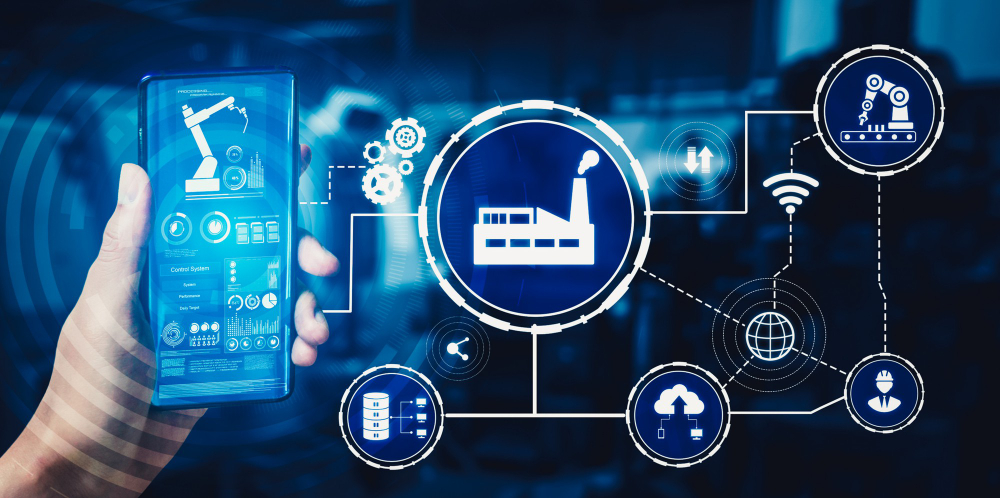As businesses increasingly turn to on-demand computing to meet the demands of modern markets, several industry leaders have successfully implemented cloud solutions to enhance their operations. These case studies highlight how companies such as Netflix, Airbnb, Spotify, Dropbox, and General Electric have leveraged cloud technologies to achieve scalability, improve performance, manage costs, and ensure robust security. By examining these real-world applications and success stories, we gain insights into the transformative impact of on-demand computing across various sectors.
1. Netflix: Scaling with AWS for Global Streaming

Challenge: Netflix needed a highly scalable and reliable infrastructure to handle the rapid growth of its streaming service, which demands high availability and performance.
Solution: Netflix migrated its entire infrastructure to AWS. By leveraging AWS services such as EC2 for compute power, S3 for storage, and RDS for databases, Netflix was able to scale dynamically to meet customer demand. AWS’s global network of data centers also ensured low latency and high availability.
Results:
- Scalability: Netflix can automatically scale its infrastructure to handle peak traffic, especially during new content releases.
- Reliability: AWS’s multiple availability zones provide robust failover mechanisms, ensuring continuous service delivery.
- Cost Efficiency: By using AWS’s pay-as-you-go model, Netflix optimized costs and invested savings into content creation.
2. Airbnb: Enhancing Flexibility and Performance

Challenge: Airbnb needed to support a rapidly growing user base with fluctuating traffic patterns, requiring a flexible and scalable infrastructure.
Solution: Airbnb adopted Amazon Web Services (AWS) for its computing needs. It utilized AWS’s EC2 instances for scalability, RDS for database management, and S3 for storage. Additionally, Airbnb used Docker containers and Kubernetes for orchestration to manage their microservices architecture.
Results:
- Flexibility: Airbnb’s infrastructure can scale in real-time to accommodate user demand, ensuring optimal performance.
- Global Reach: AWS’s global infrastructure allows Airbnb to serve users across the world with minimal latency.
- Improved Deployment: The use of containers and orchestration tools streamlined application deployment and management.
3. Spotify: Handling Big Data with Google Cloud Platform

Challenge: Spotify needed to manage and analyze massive amounts of data generated by its streaming service to provide personalized experiences and insights.
Solution: Spotify migrated to Google Cloud Platform (GCP) to leverage its powerful data processing and machine learning capabilities. Spotify uses Google BigQuery for large-scale data analytics, Dataflow for stream and batch processing, and TensorFlow for machine learning.
Results:
- Data Analytics: BigQuery enabled Spotify to perform fast and scalable analytics on petabytes of data.
- Personalization: Machine learning models developed using TensorFlow improved personalized recommendations for users.
- Operational Efficiency: GCP’s managed services reduced the operational burden, allowing Spotify to focus on innovation.
4. Dropbox: Migrating from Private Data Centers to Public Cloud

Challenge: Dropbox sought to reduce its reliance on private data centers, improve scalability, and manage costs effectively.
Solution: Dropbox transitioned to a hybrid cloud model, leveraging Amazon S3 for storage and adopting a mix of AWS and its own infrastructure. This migration involved optimizing storage costs and integrating with Dropbox’s existing systems.
Results:
- Scalability: Dropbox can now scale storage dynamically to meet user demand without investing in physical hardware.
- Cost Management: The hybrid model optimized operational costs and improved resource allocation.
- Enhanced Features: Migration facilitated faster rollout of new features and improvements in user experience.
5. General Electric (GE): Industrial IoT with Microsoft Azure

Challenge: GE needed a robust platform to support its Industrial Internet of Things (IIoT) initiatives, which require processing and analyzing data from millions of devices.
Solution: GE adopted Microsoft Azure IoT Suite to connect and manage industrial devices. Azure’s analytics and machine learning tools are used to process data and gain insights. GE also uses Azure’s security features to ensure data integrity and privacy.
Results:
- Connectivity: Azure IoT Suite enables GE to connect millions of devices seamlessly.
- Data Insights: Advanced analytics and machine learning provide actionable insights, improving operational efficiency.
- Security: Azure’s comprehensive security framework ensures the protection of sensitive industrial data.
Feel free to share your thoughts and experiences with on-demand computing in the comments below! Let’s get the conversation started.






